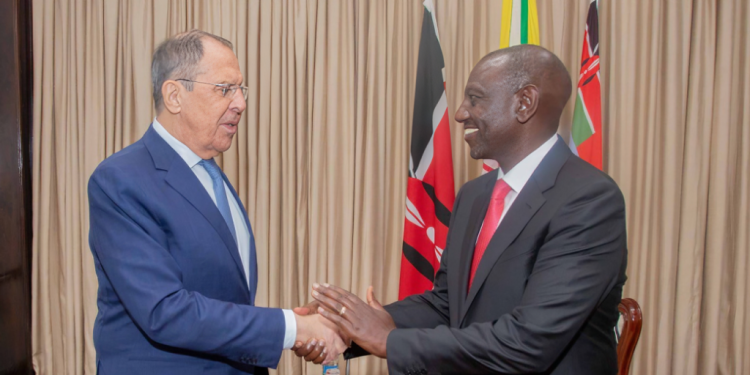Over the years, Kenya and Russia have enjoyed cordial and warm bilateral relations.
Russia, Kazakhstan, and Belarus remain key to the development agenda in line with Kenya’s Economic blueprint of Vision 2030 and Fourth Medium Term Plan(MTP IV) of 2023-2027 under the Broad Economic Philosophy of Bottom-Up Economic Transformation Agenda.
They are valued strategic development partners in Kenya’s journey towards being globally competitive, prosperous and delivering high-quality life to the citizens.
In November 2025, Dr. Peter Mutuku Mathuki, Ambassador Extraordinary and Plenipotentiary of the Republic of Kenya in the Russian Federation, took the greatest pleasure to discuss the current bilateral relations and how the Mission contributes to effective engagement with stakeholders, through various strategic ways, and promotes multifaceted cooperation between Kenya and Russia.
Interview Excerpts from Kenya’s Ambassador to Russia
Here are the interview excerpts:
How would you argue that Russian-Kenyan economic partnership have, noticeably, increased after the first and second Russia-Africa Summits?
Dr. Peter Mutuku Mathuki: As you may know, the 1st Russia-Africa Summit was held in 2019 during which H.E. Uhuru Kenyatta, Former President of the Republic of Kenya and his delegation was in attendance while the 2nd Summit was held in 2023 in which Kenya was represented by the then Ambassador to the Russian Federation.
Economic partnership between Kenya and Russia has accelerated following the Russia-Africa Summits and the Russia-Africa Ministerial Forum in 2024. Prior to the 2019 Summit trade volume between Russia and Kenya was $397 million in 2018 compared to $625 million in 2023 and $638 in 2024.
Also Read: Migratory Bird with Russian Identification Tag Captured in Kenya
Commercial exchange of goods and services including tea, cut flowers, fruits, vegetables, cereals and machinery among others has expanded almost two-fold.
Do you think that Russia and Kenya have to, particularly, raise their bilateral trade turnover? In what ways do you suggest this can be pursued between Russia and Kenya and, probably, in East Africa.
Mathuki: It is one of our main objectives to raise the Kenya-Russia bilateral trade. There are several approaches already being pursued to increase the bilateral trade between Kenya and Russia.
Firstly, the two countries look forward to concluding trade agreements under negotiations which will open up more economic opportunities both at public and privates sector levels.
Then there are efforts to encourage exchange of business delegations especially at the private sector level to promote business to business transactions.
About Kenya’s Economic Presence and Priorities in the Russian Federation
The Mission is also keen to meet with key Russian companies in logistic, agriculture, ICT and other sectors and link these contacts to their counterparts in Kenya for conclusion of business transactions.
What is Kenya’s economic presence and priorities in the Russian Federation? Beyond Russia, do you also see some useful prospects in other former Soviet republics where you have an accreditation?
Mathuki: Kenya’s priority in the Russian Federation is to implement the objectives of our foreign policy hinged on deepening the Kenya-Russia bilateral relations across the board.
However, Kenya’s economic presence in the Russian Federation is currently minimal as manifested by a limited range of export products as well as migrant workers across several fields.
Nonetheless, the Mission, in collaboration with our hosts is determined to enhance Kenya’s economic visibility in the Russian Federation as well as in Belarus and Kazakhstan where we are accredited.
The geopolitical shift has attracted many foreign players in Kenya today. Can you discuss the economic sectors that are attractive for these foreign players and the incentives that are available for foreign investors? What external countries are active in Kenya’s economy landscape in the East African region?
Mathuki: Kenya is a liberal economy and open to foreign investors from all over the globe. Economic sectors attractive for investments include: –
Manufacturing sector: Investing in Kenya’s manufacturing sector offers a strategic entry point into a dynamic and growing market, supported by a stable economic environment, government commitment to industrialization, abundant resources, and a focus on sustainability.
These factors collectively position Kenya as an attractive destination for investors seeking long-term success in the manufacturing industry.
Other incentives in the sectors include; Strategic Location; Stable Macroeconomic Environment with reduced business risks and conducive atmosphere for sustained returns; Supportive Government policies, tax incentives, and streamlined regulations; Market Demand attributed to growing population, expanding middle class, and urbanization driving consumer demand; Technology Adoption and innovation that enhanced efficiency; Access to preferential trade agreements, including AfCFTA among others.
Agriculture and Livestock sector: Investors can tap into export opportunities, leverage technological advancements, and cater to the rising middle class’s demand for diverse and high-value food products.
Other incentives include High potential for Market Growth due to rising demand for food products driven by population growth and urbanization; Leveraging on diverse agro-ecological zones for opportunities across the food value chain; Export Opportunities by accessing regional markets through Kenya’s strategic location for agricultural product exports; Supportive Government policies, subsidies, and incentives for agricultural development; Contribution to climate-resilient agriculture, aligning with global sustainability trends and Diversification through addition of tangible and essential asset class to investment portfolios with potentially lower correlation to traditional markets.
Construction & Building sector: Economic stability; Infrastructure development; Rising mortgage market, and opportunities in tourism and hospitality; Population Growth and Urbanization further contribute to the potential in this sector.
The Kenyan government has prioritized affordable housing as part of its Bottom-up Economic Transformation Agenda (BETA). Investors can benefit from government incentives and support aimed at addressing the housing shortage.
Ongoing infrastructure projects, including roads, water supply, and energy, contribute to the overall growth and attractiveness of different regions for real estate development.
Further, the government offers various incentives, such as tax breaks and reduced regulatory hurdles to encourage real estate development. Kenya’s growing tourism sector also creates opportunities for investors in hospitality and resort real estate, including hotels, lodges, and vacation homes.
Tourism and Hospitality sector: Investing in Kenya’s Tourism and MICE sectors offers a unique blend of untapped potential. Kenya has maintained a relatively stable economic environment in the region, fostering an attractive investment climate. Kenya is also emerging as a preferred destination for conferences, exhibitions, and business events in Africa.
The industry is evolving to meet changing consumer preferences such as eco-friendly resorts, adventure tourism, and cultural experiences to attract a broader range of tourists and contribute to the sector’s growth. This is supported by a growing Middle Class and disposable Income. In addition, there is a growing global demand for sustainable tourism, and Kenya is actively promoting eco-friendly practices.
Africa Green Industrialisation Initiative (AGII): AGII is an ambitious multi-stakeholder initiative that seeks to advance green industrialization and investments across the continent by “prioritising energy-intense industries to trigger a virtuous cycle of renewable energy deployment and economic activity, with a special emphasis on adding value to Africa’s natural resource endowments”, as stated in the Nairobi Declaration.
About Boosting Kenya’s Tourism
It presents a timely opportunity to leverage untapped potential of the continent to drive sustainable development.
Healthcare sector: The government’s commitment, coupled with demographic and global health trends, positions the healthcare sector as a strategic and impactful investment opportunity.
Is tourism promotion also in the radar? How do you plan to increase Russia’s tourists figures from the current level and what can you say about the standard of tourism infrastructure in Kenya?
Mathuki: The Mission, in collaboration with the Kenya Tourism Board undertakes activities to promote Kenya as a premier tourism destination.
Also Read: Details of Ruto, Zelenskyy Talks with Kenyans Caught Up in Ukraine – Russia War
In the Russian Federation, the Mission participates in tourism forums, talk shows and exhibitions to enhance awareness to the Russian public on tourism destinations in Kenya. These initiatives have slightly increased numbers for Russia tourists to Kenyan destinations.
The standard of tourism infrastructure in Kenya is satisfactory in comparison to other countries in Africa. However, there is room for expansion of hotels and lodges to provide for the increasing demand of accommodation, entertainment and hospitality.
This article has been written by Kestér Kenn Klomegâh
Follow our WhatsApp Channel and X Account for real-time news updates
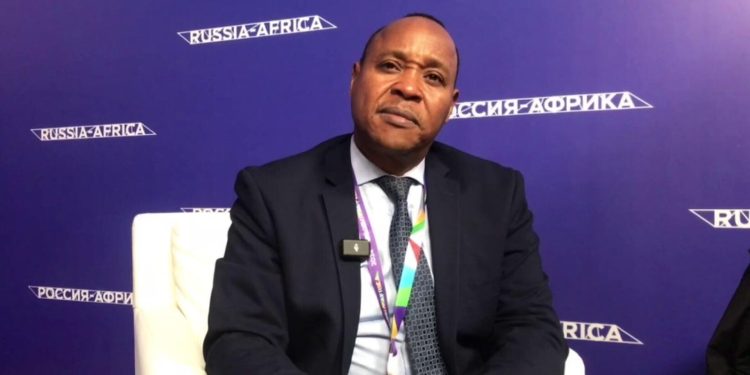

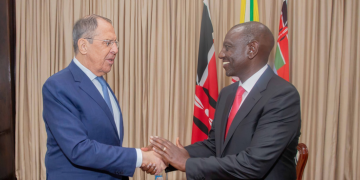
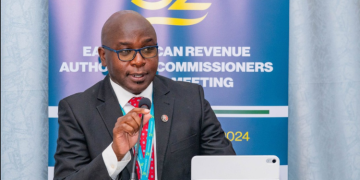
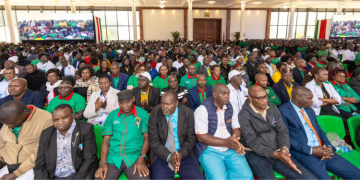
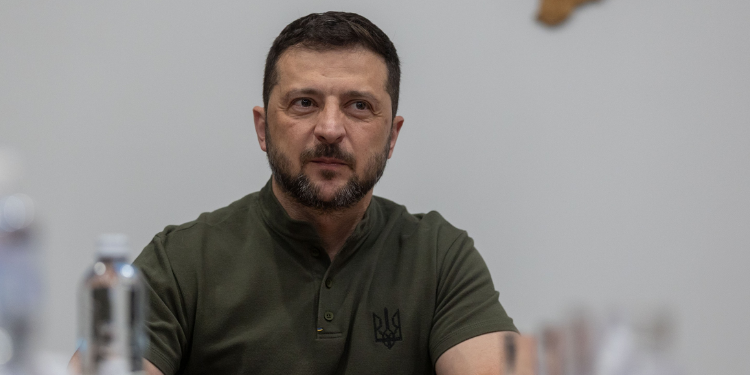
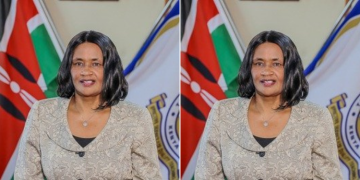


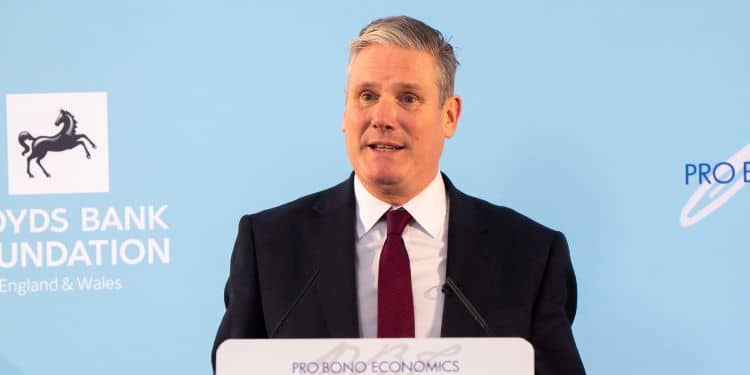
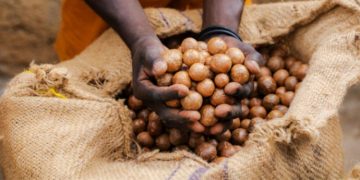






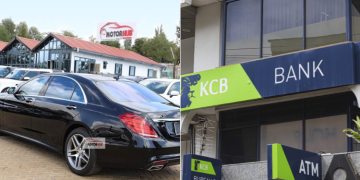

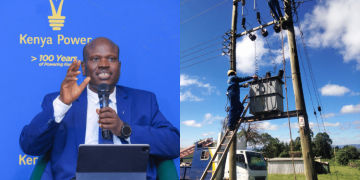
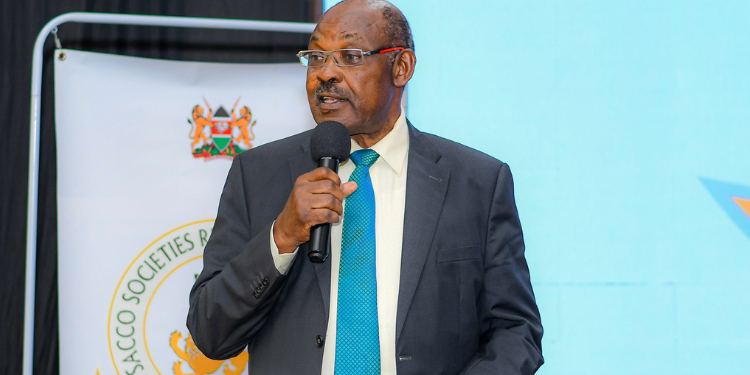

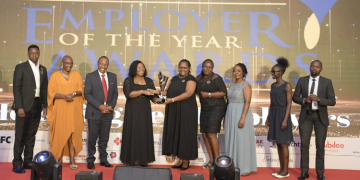

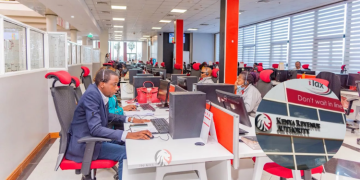






























![Senator Allan Chesang And Chanelle Kittony Wed In A Colourful Ceremony [Photos] Trans Nzoia Senator Allan Chesang With Channelle Kittony/Oscar Sudi]( https://thekenyatimescdn-ese7d3e7ghdnbfa9.z01.azurefd.net/prodimages/uploads/2025/11/Trans-Nzoia-Senator-Allan-Chesang-with-Channelle-KittonyOscar-Sudi-360x180.png)

















